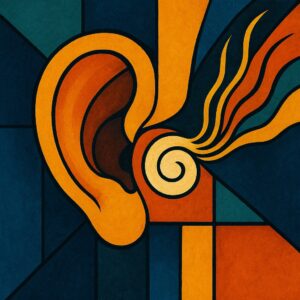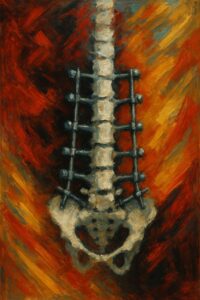A man of science must surrender to strength of will and power of positive realisation if he is to be an effective doctor free of ego
RAHUL had a fall while horse-riding on his honeymoon. He was paralyzed below the waist after the injury. He felt no sensation in his legs, and had lost bowel and bladder control. He had sustained a fracture of his seventh thoracic vertebra with an almost complete transection of his spinal cord. He was air-lifted and transferred to our hospital within a few hours of the accident. His wife narrated between sobs what had transpired, and a quick look at the patient history and detailed examination later, I knew what we were dealing with.
“We will have to fix the fracture with a few screws and rods and relieve the compression from the spinal cord, but I haven’t seen anyone with an injury of this nature being able to walk again. The purpose of stabilization of the spine is purely so that you may undergo extensive rehabilitation later,” I concluded, asphyxiating hop e at the very beginning.
e at the very beginning.
I don’t know if I was being a blunt jerk, but knowing what we know, I’m often conflicted about what is the right thing to say or do when I know the chances of recovery are next to negligible. This was akin to the well-documented case of Christopher Reeve, acclaimed for playing Superman, who was reduced to being a quadriplegic after he was thrown off a horse during an equestrian competition. He needed a wheelchair and portable ventilator to breathe for the rest of his life.
I attempted to soften the blow. “The good news is that the location of your injury is such that your arms and breathing are spared.”
“What about injecting stem cells into the spine during surgery?” he asked, his eyes welling up. Only 34, he had just been handed over the reins of his father’s business of manufacturing bottle caps. That research was in its nascent stage with no real proven benefit yet in a randomized control trial, I told him.
We went ahead and relieved the pressure from his spinal cord, removing a sharp spike of bone wedged into it and realigning the deformity with lots of metal. The surgery went off perfectly, but as expected, barring a flicker of movement, there was no improvement in the power or sensation in his legs. When it was time to get discharged, he once again pleaded, “Will I ever be able to walk again?” Most surgeons brush off a definitely negative response with “let’s hope for the best, “fingers crossed,” or “God willing”; in our country, the last one gets us out of difficult questions with ease and even panache. In contrast to all the responses I could have relied on, with a straight face betraying no emotion, I said, “I doubt it” with unvarnished honesty. There is a fine line between false hope and audacious optimism, I thought, remembering all the cases of severe traumatic spinal cord injury I had operated on over the years.
Moving closer home, my uncle was diagnosed years ago with chronic leukaemia. Although it was under control with the help of oral chemotherapy, it recently relapsed fairly aggressively, transforming into an extremely rare variant. Most top doctors in India and the United States concluded that they had exhausted all options. As he was 73, palliation was the answer; a bone marrow transplant was certain to fail. The Americans suggested he enrol in a clinical trial with a very uncertain prognosis. He researched his condition extensively, learned of the latest developments in the field, and sent off a couple of hundred emails to various centres across the word, most of whom were unwilling to accept the futility of treating this condition, but he didn’t give up. Finally, he ended up in Israel and received a specialized tailored transplant that resulted in complete remission. “Every outlier represents an opportunity to refine our understanding of illness,” I remember reading somewhere.
Human beings faced with adversity are tenacious. Being resolute in overcoming insurmountable obstacles is what fuels the human spirit. We, as doctors, often don’t have an answer to many of the uncertainties we see; we tend to throw up our hands when things seem beyond our control. While scientifically documented advances through clinical trials are the sanctum sanctorum of medical progress, there is a growing body of evidence that by simply changing one’s perceptions, the human body can heal itself from disease. What the ancient spiritual leaders of our country practiced with promise, faith, and conviction, science will probably be able to prove soon. I am convinced that thoughts, belief, and emotion have a huge impact on our health and our ability to heal. Cancer survivors, stroke victims, and those who have miraculously recovered from physical, mental, or emotional trauma have travelled a deeply complex and personal journey of healing—small footsteps towards the infinite potential of the human mind.
A few weeks ago, a well-toned, perfectly healthy man who appeared to be in his late thirties walked into my office with his wife. The face looked familiar. “You don’t remember me, do you?” he smiled. “I’m Rahul,” he continued, turning around to lift his T-shirt and show me his scar. “I came back to prove you wrong!” I was in complete disbelief to see him walk unaided. He told me that three years of extensive rehabilitation, machine learning, aqua and music therapy, meditation, spiritual practices, and the power of visualization had helped him make this miraculous recovery. His one-point focus across this time had been to walk again, he said. “No one” I said, paraphrasing the Bible, “labours in vain.”
I realise that these people are exceptions to the rule. But they also remind us that there are no rules. They are the ones who make the word impossible seem like it’s just an opinion. They defy everything we’ve learned while studying to be doctors, all we know as scientific fact. And that’s why, they end up being the patients we admire and remember the most—because they teach us that the will to make a difference often makes the biggest difference.




